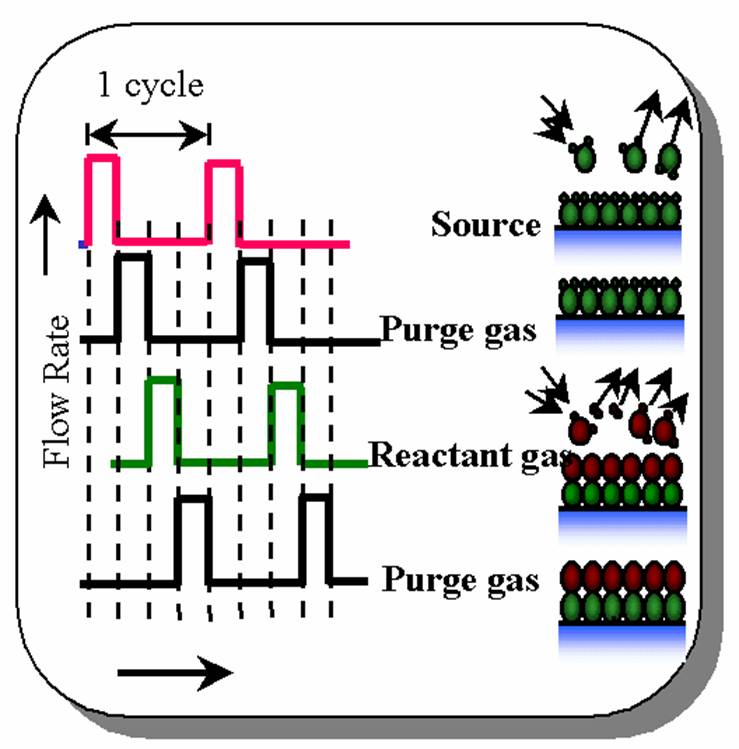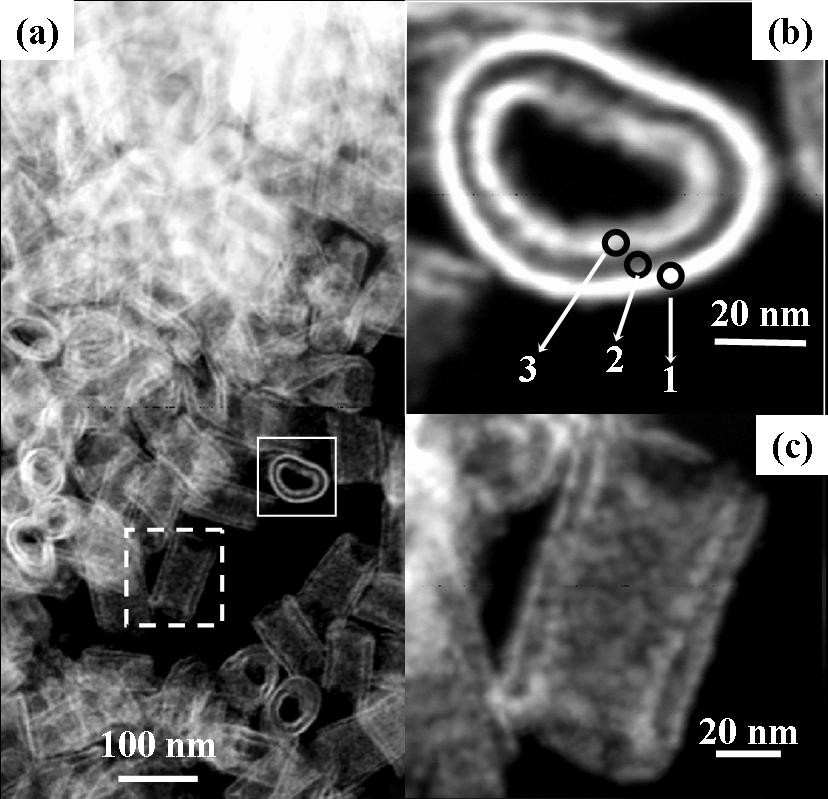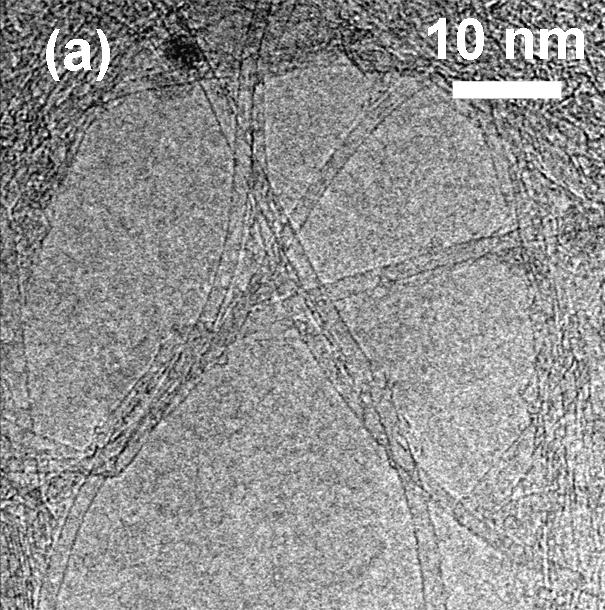Current research interests are:
1. Atomic layer deposition (ALD): dielectric or metallic films and nano-materials (e.g., MoS2) by ALD technique.
2. Carbon nanotube (CNT): synthesis, purification, functionalization and its device applications.
3. Various applications of ALD and nano-materials for industirial utilization: transistors, memories, catalysts, gas diffusion barriers, solar cells, fuel cells, etc.
Atomic Layer Deposition (ALD)


Typical sequence of ALD process (left) and TEM images (right) of Ru thin fims grown on amorphous carbon nanotubes (Min et al., Adv. Mater. 2003, 15, 1019)
ALD is a special modification of chemical vapor deposition (CVD) to induce the self-limiting growth of thin fims. In ALD method, the substrate temperature (generally 150 ~ 300 oC) should be lower than the temperature of thermal decomposition of precursors. Consequently the film growh is not due to the thermal decomposition of precursors, but attributed to chemisorptons of precursors via surface reactions between presursors and functional groups on the surface of the substrate.For example, for oxide thin films, the typical sequence of a cycle in ALD process consists of four steps (See the left figure). Step 1: feeding metal-organic precursors, Step 2: purging the reactor to remove some byproducts and the excess precursors, Step 3: feeding oxidant gas, Step 4: purging the reactor again. By repeating the cycle, thin films can be grown with a high thickness controlability in a angstrom-scale. Furthermore the growth behavior of thin films are self-limited, that is, the growth rate (thickness per cycle) at the process window of ALD is generally independent of the amount of the supplied precursors.
Owing to the self-limiting growth behavior, ALD films show excellent conformality on 3-dimensional structures. The right figure shows Ru thin films grown on amorphous carbon nanotubes. We are interested in dielectric or metallic thin films by ALD for electronic applications, and also studying synthesis of nano-materials by using ALD technique.
Carbon Nanotube (CNT)
.jpg)

Carbon allotrops (left) and TEM image (right) of single-walled carbon nanotubes grown by water-plasma chemical vapor deposition (Min et al., J. Am. Chem. Soc. 2005, 127, 12498)
Carbon nanotubes (CNT) is an 1-dimensional allotrope of carbon. Owing to its unique physical, chemical, and electrical properties, CNTs have been intensively studied for various applications including transistors, interconnection, transparent conducting films, field emission, hydrogen storage, composites, and sensors.
We are interested in mass production, purification, separation and functionalization of nanotubes for electronic or energy applications.


